As a reader, I really enjoy books that employ telepathy in some form. I mean, as a kid, who hasn’t imagined themselves talking to someone with their freaking mind? Naturally, as I grew older, I consumed more books, TV shows, and movies, and was exposed to new, subtler forms of telepathic communication. I gamed a lot, too. Plenty of tabletop stuff, but also a ton of RPGs, some of which had rules and character classes built around telepathic powers. (Shout out to my fellow Rolemaster/Space Master GMs!) Half the fun of consuming that type of media and playing those types of games was seeing (and even experiencing through the RPGs) the ingenious ways telepathy was employed.
Speaking as a writer, telepathy can be a real siren song. Writing a story with characters a continent apart? It can be really tempting to introduce telepathic communication of some sort to bridge that gap. Otherwise, it’s what? Months of travel by horse? Message by raven? I don’t mean to imply my books are chock full of telepaths—they aren’t—but I’ve definitely succumbed to the siren’s call from time to time.
Take Absynthe, my new decopunk novel set in a reimagined Roaring 20’s Chicago. The book’s main character is Liam Mulcahey, a reclusive war vet who took part in a military experiment during the Great War that allowed his squad, the Devil’s Henchmen, to communicate telepathically. I didn’t want to focus on that part of his life early on in the story, however. I wanted his memories, and his powers, to accrue over time. So it is that when we meet Liam, he has amnesia, only, rather curiously, the memory loss is limited to the time he spent with the Devil’s Henchmen during the war.
That Liam’s amnesia isn’t complete introduces the mystery of its underlying cause. It soon becomes clear that his amnesia is almost certainly not due to the head wound he suffered near war’s end, as Liam has always assumed, but to something much more sinister. (Pulling back the kimono a bit, Liam’s amnesia is a small nod to Roger Zelazny and Corwin, the main character in Nine Princes in Amber, one of my favorite books of all-time.)
As Absynthe progresses, Liam’s time in the Devil’s Henchmen and the real reason behind his amnesia are slowly revealed. That evolution goes hand in hand with Liam’s regaining his telepathic powers, which gives him and his newfound allies hope in stopping the government’s horrific plans for the country.
I hope you’ll give Absynthe a spin. I think you’ll enjoy it. In the meantime, here are five other books that make interesting use of telepathy:
The Dragonriders of Pern series by Anne McCaffrey
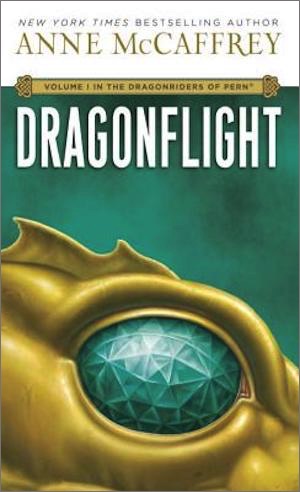
A classic, particularly in terms of human-to-animal communication, Anne McCaffrey’s Pern series begins with Dragonflight. The planet of Pern is home to telepathic dragons that are bred and used to combat the deadly Threads that once fell with regularity on their far-flung world. But it’s been over 400 years since the last Threadfall, and many people are beginning to doubt they will ever return.
Enter F’lar, a boy telepathically bonded to Mnementh, a powerful bronze dragon. F’lar must help convince the populace that the Red Star is nearing once again and that Threadfall is imminent. I loved the book when I read it as a teen, but I especially liked how McCaffrey treated the bonds between the dragons and their riders. I can still recall F’lar’s opening scene, where he emerged from the between on Mnementh along with his wingmen on their own dragons. The way F’lar and Mnementh communicated was notable due to the way the narration downplayed the mechanics of their mental link. It didn’t have to be explained. It simply was. Less was certainly more, in this case.
The Lives of Tao by Wesley Chu
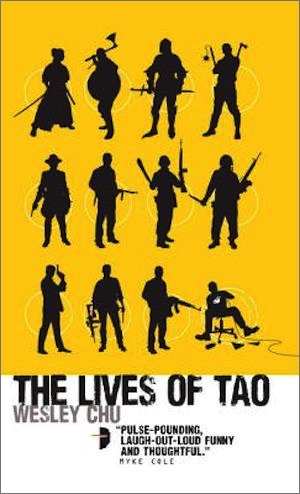
I love the concept of The Lives of Tao. Roen, an out-of-shape IT dude, discovers he has a stowaway passenger inside his brain: an ancient alien life-form called Tao. After crash-landing on Earth, the alien race known as the Quasings split into two factions: the peace-loving, but under-represented Prophus, and the savage, powerful Genjix. Roen soon finds himself caught up in the Quasings’ endless civil war. With the help of his stowaway, Tao, Roen must train to become the ultimate secret agent before the Genjix defeat the Prophus once and for all.
Is the relationship Roen has with Tao telepathy, strictly speaking? Yeah, I think it is. Even though Tao resides inside of Roen, the two sharing the same physical body, their minds are distinct. More importantly, it’s just plain fun and hilarious watching Roen deal with this ancient creature inside his head, even as he struggles to save himself and the world.
Ancillary Justice by Ann Leckie
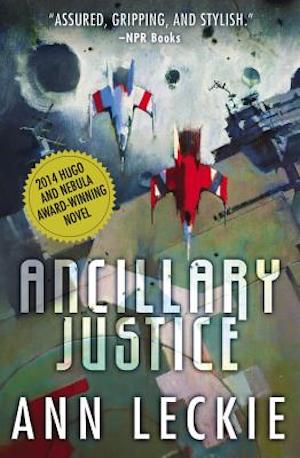
In Ancillary Justice, Breq was once the Justice of Toren, a starship with an artificial intelligence that linked thousands of soldiers together—a hivemind, in essence, with Breq at its core. It was a mesmerizing experience entering Breq’s world and getting glimpses of the life it once led, linking so many in service of the Radtch Empire and its unquenchable thirst for expansion.
The way Ancillary Justice addresses the notions of empire and the costs of war and domination was masterful, but my favorite part was Leckie’s take on an AI navigating the world of humanity after leading a very different life as a starship. The “telepathy” in Ancillary Justice is more like networked data communication, a neural network of sorts, but it still certainly qualifies. It’s an excellent read and one I highly recommend.
“Story of Your Life” by Ted Chiang
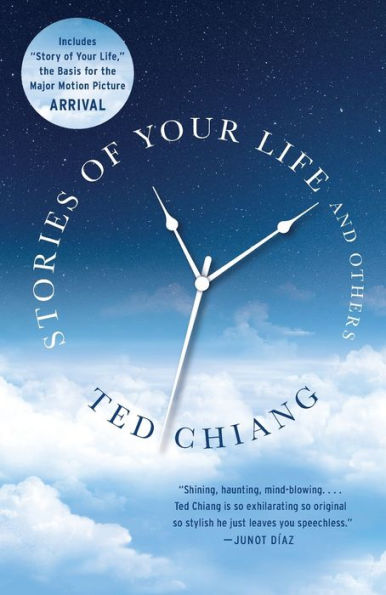
While I don’t think Chiang’s brilliant novella fits neatly into the telepathic communication bucket, I mention it because I found (and still find) the blossoming of the main character’s abilities fascinating. In essence, the main character, Dr. Louise Banks, is a linguist who’s called in to help decipher messages from alien ships that have landed on Earth. Through her research she comes to understand the alien language, which is not only elegant and complex but holds the key to the perception of time. When fully submerged in it, Louise finds herself able to perceive her entire life, from birth to death. In this way, Louise is able to relay to her own daughter the “story of your life.”
Brilliant and mind-blowing, “Story of Your Life” is a true gem in the sci-fi landscape. Why do I lump it in with telepathy, though? Because Louis is able, in essence, to communicate with the infinite versions of herself across time. She isn’t speaking telepathically in the traditional sense, but communication (the basic purpose of telepathy) is certainly occurring.
The Wormwood Trilogy by Tade Thompson
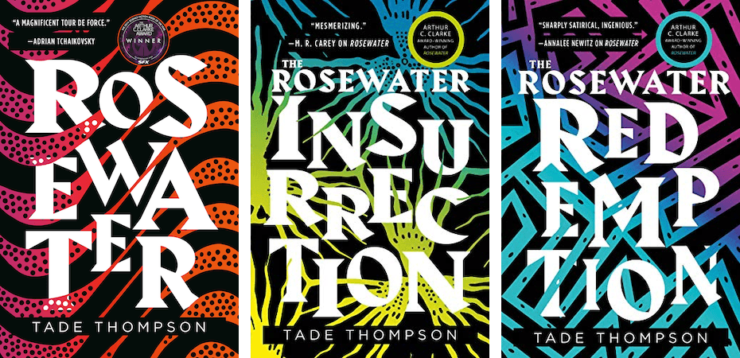
Set in the year 2066, Rosewater is a Nigerian town on the edge of a mysterious alien biodome. The biodome occasionally opens, “healing” groups of humans in strange, unpredictable, and sometimes horrific ways, leading to brutal and tragic “cleansings” on the part of the surviving security forces. The dome also creates “sensitives,” humans who gain telepathic powers, allowing them to manipulate the minds of others, or tap into the xenosphere, a dreamlike place of shared consciousness.
On the surface, our main character, Kaaro, is a finder, a sensitive who immerses himself in the xenosphere then uses his altered state of mind to prevent telepathic attacks on the employees of the bank he works for. Kaaro finds this work dull and has another life entirely. Despite his checkered past, he works for a secret government agency that keeps tabs on Rosewater, the biodome, and those who seek to use it for ill gains. When other sensitives mysteriously start dying, Kaaro’s role in the agency becomes more important, and much more personal for Kaaro himself. It’s a heady mixture, told with a noir flare, and I can’t wait to see where Thompson takes the story next.
Buy the Book
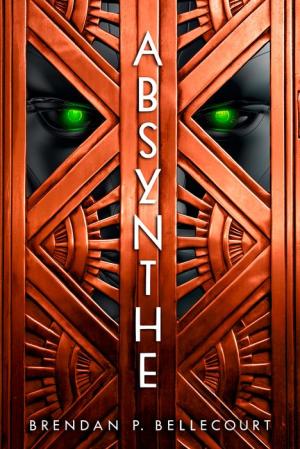

Absynthe
Brendan Bellecourt was raised in the cold climes of rural Wisconsin, where he lives still with his family and trio of cats. His love of science fiction was sparked early by Frank Herbert’s Dune and C. J. Cherryh’s Faded Sun Trilogy. Later influences include Robert Charles Wilson, Ted Chiang, and China Miéville. His favorite stories are those with flawed protagonists who are deeply affected by, and later come to influence, some jaw-dropping, world-altering change.











Some great books here; my TBR continues to grow!
I also really enjoyed Anne McCaffrey’s ‘Talents’ series, about telepathic humans and how that might play out in society on Earth.
If you enjoy stories with telepathic characters, you absolutely can’t miss Julian May’s Golden Torc series (also known as the Saga of the Pliocene Exile.) It’s amazing.
I can’t believe I need to add this:
The Demolished Man, Alfred Bester.
Arguably THE book about a telepathic society.
@3 DigiCom
Tension, apprehension, and dissension have begun.
Telepathy with companion animals. Absolutely, yes! Telepathy with other humans when I’m an introvert. Heck, no!
Unless an author is willing to go all in on what a society and individuals would be like in a world of talented telepaths, telepathy is best used as plot shorthand for getting messages sent, etc. I believe it was Marian Zimmer Bradley who used “witch towers” like that.
Wild Cards universe – Dr. Tachyon.
Bujold’s Vorkosigan-verse – Ethan of Athos – Terrence Cee
In Silverberg’s Dying Inside (one of the darkest from his it-has-to-be-profound-because-it’s-gloomy period), David Selig is a mind-reader whose most effective use of the skill is sensing how students at various Manhattan colleges use language so he can ghost papers for them more effectively; the title comes because his ability is gradually fading.
Teleportation is the central psychic ability in Bester’s other early novel, The Stars My Destination, but parts of the plot involve a projective telepath (people can hear her if she doesn’t mute, she can’t hear them).
In Cordwainer Smith’s only novel, Norstrilia, two-way telepathy is one of the measures of whether someone is fit to survive on the eponymous planet.
In Spider Robinson’s Telempath, the narrator learns to speak mind-to-mind (concepts rather than straight words, but effectively) with energy beings who live in Earth’s upper atmosphere and have been wrongly blamed for the collapse of civilization.
There are plenty of other ancient examples; telepathy was a Thing in Campbell’s time (and continuing with writers who he fostered), as it was one of the less-disreputable of his crackpot beliefs. (It actually had — and still has — vaguely academic support, unlike the Dean Drive, the Hieronymus Machine, Krebiozen, etc.; I cited articles from the Journal of Parapsychology in a college assignment.) ISFDB has category just for McCaffrey’s non-Pern telepathy stories, although my recollection is that they actually fall into a couple of blocks without clear connections between them. (The “Rowan” stories may have been retconned into the ~contemporary stories some time after I stopped reading them.)
May’s Pliocene books are fantastic. (Not all the prequels were as good.)
My first big exposure to telepathy was Marion Zimmer Bradley’s The Forbidden Tower, which I still think stands up very well.
Sherri S Tepper’s True Game was the one that came to mind with prominent telepathy
The mention of the telepathic dragons/riders from Pern (which never really did anything for me, much to my wife’s chagrin) reminds me of C. J. Cherryh’s excellent alien-horses from RIDER AT THE GATE and its sequel, CLOUD’S RIDER. The horses speak telepathically with their riders, but in pictures not words, and Cherryh’s method of depicting this is masterfully done, and just as disorienting it would likely be in real life. One of the big conflicts of the first book involves a “rogue” horse who projects images into the minds of an entire town, leading to the death of almost everyone there.
Steven Brust’s Vlad Taltos series?
Zenna Henderson’s The People.
All the books in Ursula K. LeGuin’s Hainish Cycle.
Way back in 1959, Pyramid Books put out a mass market paperback edition of E. Everett Evans’ Man of Many Minds, with a great cover by Frank Kelly Freas. I picked it up and read it almost at once. I think it was my first encounter with telepathy. At one point, the protagonist splits his mind into dozens of pieces and inhabits a swarm of bees. I’ve never forgotten that.
John Wyndham’s The Chrysalids is a powerful one – a post-nuclear apocalypse community has a version of Christianity centred around eradicating all trace of mutation, in plants, animals, and humans. Our narrator develops telepathy as a child and makes contact with several others with the same gift, both in his own locality and further away, and they have to work together not to be discovered. The telepathy is explored in a few interesting ways – sometimes it’s rendered as ‘speech’ via text but it’s also explicitly not primarily that, more emotion / image-based.
I have a memory of reading and enjoying a collection of stories by Henry Kuttner (?) (or was it Thomas M Disch?) about how society changes and adapts to the evolution of telepaths among certain humans, starting with fear and bigotry and ending with amalgamation.
And there was a cheery as always John Brunner novel about a telepath having a breakdown, but I can’t remember that title either – The Telepathist?
“Emerald Eyes” (1988) by Daniel Keys Moran – what happens when, after a world war to unify Earth under the U.N., genetic engineering meant to create better soldiers accidentally creates telepaths? How do you control them? And what happens when they no longer want to be controlled?
@15: I’m not sure the telepathy in The Chrysalids (Rebirth in the widely-distributed Boucher anthology) is primarily non-text rather than using whatever form is effective; e.g., one of the several abstract telepathic discussions between the narrator and the approaching rescuers became the lyrics for Jefferson Airplane’s “Crown of Creation”. However, I would not argue at all with your description as “powerful”; that book meant a lot to me when I was young, and I’m annoyed at myself for not remembering it.
@13: instances? I reread The Left Hand of Darkness just a few years ago, and recall a scene involving a possible seer, but nothing in that or any other book of telepathy; the ansible was a device that generated printed text.
@16: your first sounds like Kuttner’s Baldy stories. For your second, Brunner’s The Whole Man discusses breakdowns of telepaths (they tend to suck in non-telepaths as supporting characters in personal fantasies), but it (like most Brunner) is not un-cheerful; I recall 3 doorstops that end pessimistically, and Quicksand is about a psychiatrist who commits suicide with his dropped-from-the-future patient, but nothing combining telepathy and gloom — maybe someone else can point to a case.
The Corwin scene is an echo of extremely similar scenes in Dashiel Hammet and Raymond Chandler stories.
@18
That sounds right. I think I read the Kuttner stories in a UK anthology called Mutant. And that does sound like the Brunner I was thinking of and it does have a fairly happy ending.
Thanks
Jeff and Jean Sutton wrote a few SF books back in the 60s about telepathy. The Beyond and The Programmed Man, at least.
(In the late 80s / early 90s our library was clearing out a bunch of old scifi like that, and H Beam Piper. Was great for a nerdy kid)
Interesting list! I’d add Katherine Kurtz’s Deryni books.
For @5, the telepathy/psionics in the MZB Darkover books was much wider spread than just a messaging system, although that was definitely a feature.
All suggestions great, but don’t forget Slan, by A E Van Vogt!
The Knife of Never Letting Go by Patrick Ness explores the upsetting implications of hearing everyone else’s thoughts.
And I have to mention one of my favorite human/animal bonds, Robin Hobb’s Fitzchivalry and Nighteyes :)
Whoops, also, the Valdemar books by Mercedes Lackey, of course, with telepathic links between the horse-like companions and their riders, or the … the name eludes me … and their bond birds, and with some of the humans having human and/or animal telepathy or empathy. There’s other skills and magic involved, but this list is about telepathy…
Variable Star by Spider Robinson has telepathic twins, very rare, who act as the link between earth and space ships. It’s a very minor part of the book, but I love that it’s not a huge deal and not something that every one can do.
Also, Psion and Catspaw by Joan Vinge has a main character who is telepathic, and the horrible things that happen to him because of that talent.
And don’t forget James Blish’s Jack of Eagles. And George O. Smith’s “Highways in Hiding.” There are many books from the ’50s and ’60s that explore telepathy; the comments above have picked out some of the best.
One of my favorites (but then, I have a soft spot in me for just about anythng she writes) – Julie E Czerneda’s “Clan Chronicles” (a trilogy of trilogies) – a “created” race breeding stronger and stronger telepaths/telekinetics. How very Vorlon of the creators…
How about The Knife of Never Letting Go, by Patrick Ness. YA though it is, The Noise shows a downside to telepathy!
I saw MZB and Darkover added to the list and Bujold’s Etan of Athos. Doesn’t anyone remember Flandry series by Poul Anderson? His nemesis, Aycharache, the sole survivor of a telepathic race?
And okay, James Schmitz is long dead, but what about Telzey Amberdon or the telepathic government department of the Hub?
Alan Dean Foster’s Pip & Flinx Adventures features a telepathic protagonist.
And lets not forget numerous stories by Andre Norton featuring telepathy.
Re. #23, Slan was one of the first SF books I read.
Suzette Haden Elgin’s Coyote Jones novels, and her Ozark trilogy, which all feature odd and strange psionics.
Telzey Amberdon by James Schmitz!
KA Applegate’s Animorphs tho
@26: I don’t know whether that was in Heinlein’s outline or a tribute added by Robinson, but the telepathic-twins-as-communicators line was the foundation of Heinlein’s Time for the Stars (one of his last YA books); the twin who goes to space is the narrator.
@2: conversation in another thread reminds me that the Torc/Exile books are only part of the story; there are another four books covering the rise of psychic powers and the Metapsychic Rebellion that is backstory to the earlier-written works. IMO the Torc/Exile books are better — or at least more approachable (the MR gets into what I read as obscure theology), but I suspect some readers will still enjoy them.
And people keep bringing up more things I should have remembered — Telzey Amberdon, Highways in Hiding, Aycharaych (although IIRC he was purely a reader, relying on deception to put thoughts in other people’s minds), Coyote Jones (showing the idea was still being played with after Campbell was dead) — this has been a fascinating trip down Memory Lane….
Some classics – Heinlein’s Time For The Stars features telepathic twins providing comm links for starships, and at least half of Andre Norton’s stories include telepathy, usually with cats or other animals.
Popular stuff back in the fifties.
I loved the telepathic connection with dragons in the Pern books. I found something similar in a story in the Dreamtime Damsels & Fatal Femmes Anthology, a story about a female alchemist with a miniature dragon. I’m hoping the author will revisit the world for more stories or a book.
@7 @chip137 “as it was one of the less-disreputable of his crackpot beliefs. (It actually had — and still has — vaguely academic support”
My understanding is that all of the “studies” purporting to support paranormal abilities have been soundly refuted.
Apparently, they cherry picked their data. They would assume that a telepath, e.g., needed time to warm up, so the first part of the data is discarded. Then they would assume the telepath exhausted the ability and they discarded the latter chunk of data.
Any chunk of random numbers will have clusters that appear non-random.
Basically, they discarded the random parts of the random data and kept the naturally occurring clusters that appeared to support their hypothesis.
@@@@@ 34, Schmitz also a short series of tales centering around the zone agents of the Vegan confederacy in which psi powers and psi tech were standard. High powered psychics are often the problem but training and tech help even the playing field.
@37 @trag: I wouldn’t be surprised if all the old studies had been discredited, but the journal is still around — spawning new studies to be discredited?
Lee Killough’s DEADLY SILENTS has, if I recall correctly, a telepathic society and Whatever Shall We Do about those who aren’t telepaths? I believe there’s a murder or two in it as well.
Octavia Butler’s Patternist series. I’m thinking particularly of Mind of My Mind. Both that book and several of MZB’s Darkover novels (notably, Stormqueen) focus on the idea of a deliberate breeding program for telepathic or other psionic abilities and the potentially horrific abuses of such a program.